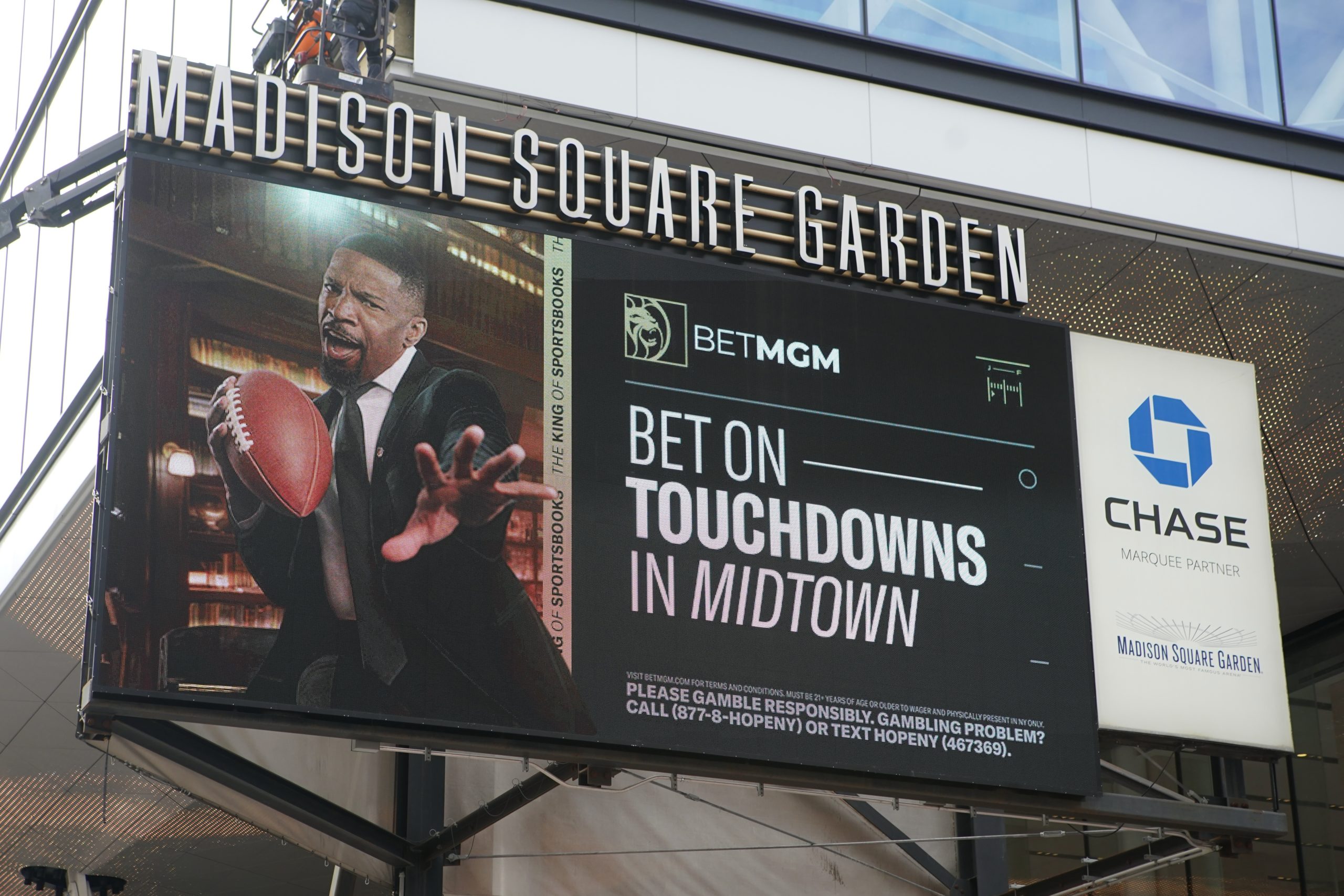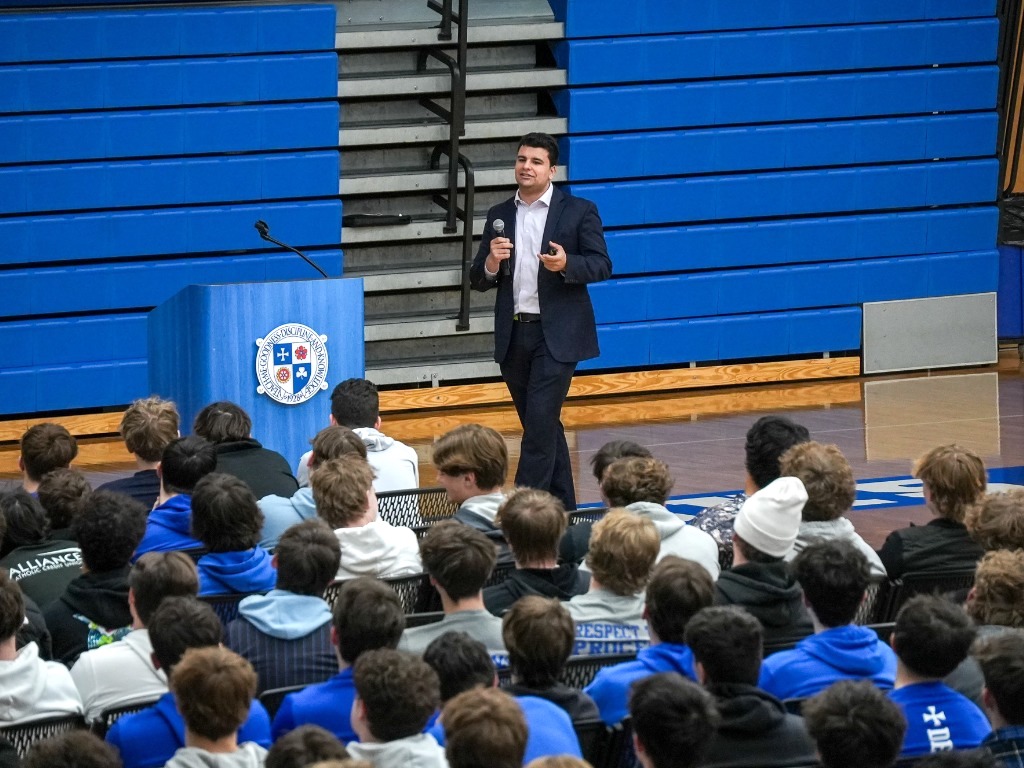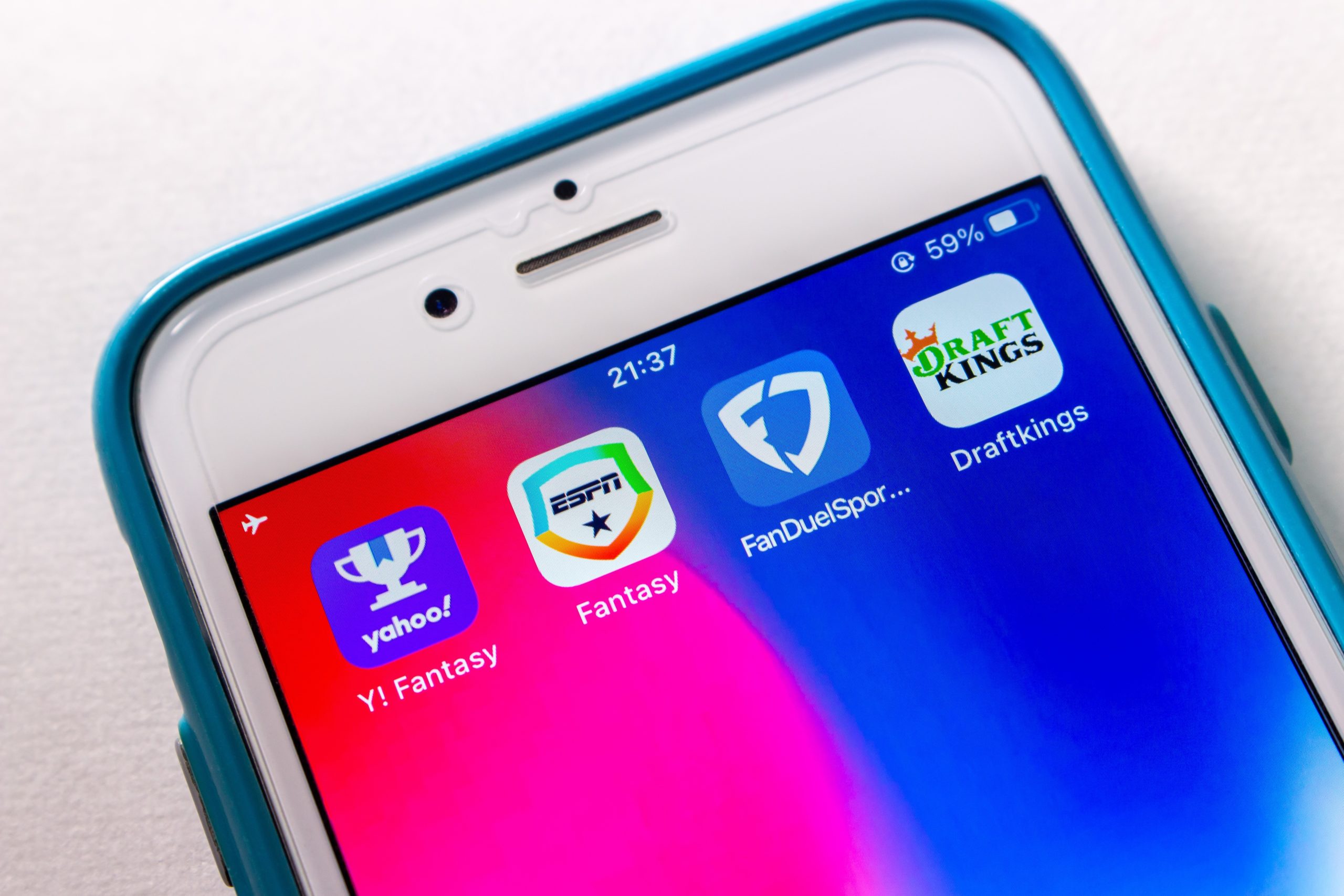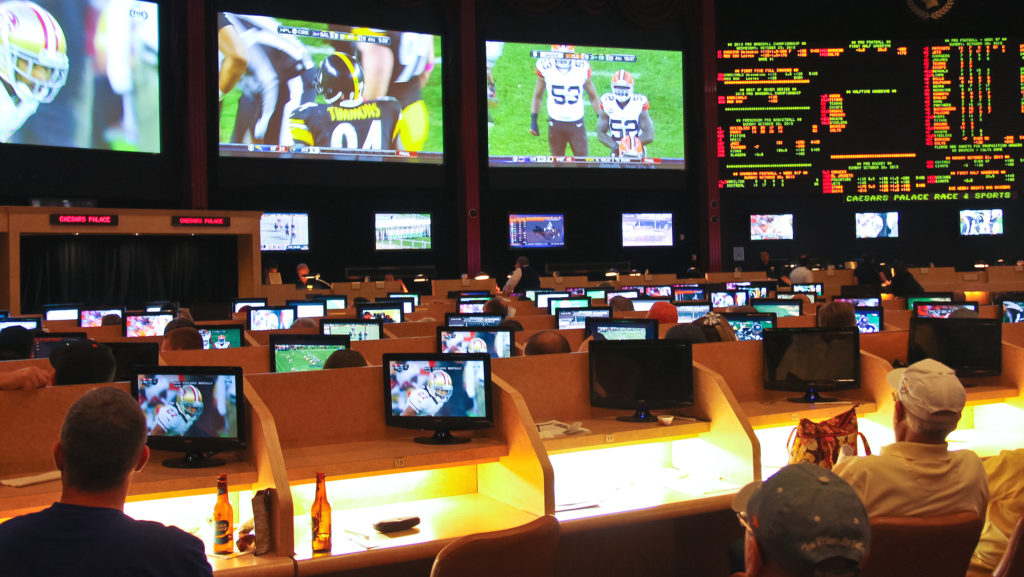Saul Malek always wanted to be a sportscaster. A Houston native, he loved the Astros, attended sports communication camp, and played fantasy baseball with his middle-school friends as a way of keeping in touch through high school.
But in college, the world of sports became less of a hobby and more of an obsession.
In his sophomore year, a friend of Malek’s invited him to join a wager on a Major League Baseball game that he was placing through a bookie. “I didn’t want to lose the money I’d saved up for school, but it was only ten bucks,” he remembered.
Malek recounted the game in detail: “It was Sept. 20, 2017, Royals versus Blue Jays. My bet on the Royals won almost instantly when they went up 9-0 in the second inning. I convinced myself I was a winner, doing it all from my phone.”
Malek was euphoric. For a guy who had always struggled with self-esteem, winning made him feel good. “Why wouldn’t I bet more?” he thought.
Just two years later, he found himself at his lowest point. He was $20,000 in debt, his girlfriend had broken up with him, saying he treated her poorly, and he was squandering the college education his parents had given him.
“At that point I was betting on tennis matches in Bulgaria, staying up all hours of the night,” he remembered. “It was easy to get caught up in debt, not make a payment, and then find a new bookie. A thousand dollars of credit does not feel like a thousand dollars when it’s online.”
Malek’s story is part of a nationwide trend in which sports gambling addictions are on the rise, made possible in part by a new legal landscape and easy technological access.
Seven years since the Supreme Court found the Professional and Amateur Sports Protection Act — which had banned state-authorized sports gambling — to be unconstitutional, 39 states and Washington, D.C., have legalized it. Today it is ubiquitous, a normal part of American culture.
“It’s hard to watch any major sporting event without seeing ads for sports betting companies. It’s even endorsed as part of the broadcast,” said Scott Weeman, founder of Catholic in Recovery, a nonprofit that works with people suffering from addictions.
Many celebrities, including Kevin Hart and John Cena, as well as professional athletes like Eli and Peyton Manning, openly endorse betting platforms and apps.
“The message from the industry is, 'Be responsible, do better money management, take a cooling period,’” remarked Malek. “But for a 19-year-old with a compulsive drive, that stuff doesn’t come into play.”

Though Malek is careful not to demonize gambling per se, he does note that companies use effective tactics to attract first-timers. “They are good at offering promotions and incentives to sign up. They’ll say, ‘If you deposit $5, you’ll get $100 in free bets or risk-free options.”
“And now it’s just nonstop access,” he lamented. “There’s no real time where you are forced to cool off.”
Globally, the online sports betting market yields $50 billion per year. In 2024, U.S. operators reported $13.7 billion in gross revenue. FanDuel and DraftKings, the leaders in online sports gambling, reported $4.5 billion and $3.7 billion of revenue, respectively, in 2023.
While not all states that legalized in-person sports gambling permit it online, addiction rates across the nation are skyrocketing.
The National Council on Problem Gambling estimates that 1% of American adults, or 2.5 million people, qualify as having a problem with disordered gambling. Their findings also suggest that the rate among sports bettors is at least twice as high as among gamblers in general.
In New Jersey alone, the Council on Compulsive Gambling has reported a 277% increase in calls to its problem gambling helpline, mostly from young adult males. A Siena College survey reported that 48% of males under 50 have an account with an app like FanDuel, DraftKings, ESPNBet, or BetMGM.
Malek predicted: “We’re only a few years from seeing the widespread consequences of this,” including broken relationships, ruptured families, bankruptcy, depression, and suicide.
According to Anna Lembke, M.D., the medical director of Stanford Addiction Medicine and author of The New York Times bestseller, “Dopamine Nation: Finding Balance in an Age of Indulgence” (Dutton, $20), gambling addiction works in a slightly different way from other compulsive behaviors.
At the root of addiction is the neurotransmitter dopamine, which is involved in reward processing and motivation. The more dopamine that’s released into the brain, the more addictive a substance or behavior.
According to Lembke, dopamine is not necessarily released after a gambling win. It’s released as a result of risk and uncertainty, which is why gamblers chase their losses. Experts say this is what makes sports betting so insidious and hard to treat.
Addiction specialists and public health experts have expressed serious concern about the influence of lobbyists on the expansion of sports gambling in the U.S. Collectively, lobbying groups have spent more than $39 million focused on legalization, favorable tax treatment, and control over data and advertising.
The funds have also been directed to try and defeat the GRIT (Gambling, Addiction, Recovery, Investment, and Treatment) Act, introduced this January by Sen. Richard Blumenthal of Connecticut.

So who is working to help those who are caught up in sports gambling addictions? There are certainly a few individuals like Malek, who is now engaged in full-time public speaking about prevention and recovery.
Fortunately, institutions like the Catholic Church are starting to throw their weight behind a variety of means to limit the harm that sports betting causes.
The subject was a concern of Pope Francis, who in a September 2024 speech to the leaders of popular movements cited online sports gambling as something that “destroys entire families.”
He instructed them to “expose the mental illness, despair, and suicides caused by the fact that in every house there is a casino through the cellphone.”
Though the Catechism of the Catholic Church states that “games of chance or wagers are not in themselves contrary to justice,” they “become morally unacceptable when they deprive someone of what is necessary to provide for his needs or those of others.”
Weeman, who started Catholic in Recovery in 2017 after his own journey to sobriety from drugs and alcohol, recognizes that it’s a growing problem.
“We’re seeing an uptick in interest in our groups in states where sports gambling is legal,” he said. “Like most addictions, people experience a lot of shame, fear, resentment, and isolation.”
One of the saddest things he sees with gambling is the impact on families, citing lost resources as well as the emotional and financial neglect of children.
CIR provides resources, retreats, and recovery groups (both in person and virtual) in more than 40 states in the United States and in some parts of Canada, Mexico, and Europe. Weeman estimates that by the end of the year, more than 10,000 individuals will have participated in at least one of their offerings.
Weeman is grateful that priests and religious leaders have been getting small groups started. Many of those starting groups have undergone their own treatment for addiction. When he meets resistance from pastors who are fearful of having addicts meet on their grounds, Weeman advises: “Father, they’re already here. They are just not being treated. Addiction doesn’t discriminate based on religion.”
State Catholic Conferences have also been working to defeat legislation that would further spread online sports gambling.
In January, the North Dakota conference laid out its opposition to HCR 3002, a bill aimed at expanding sports gambling beyond casinos to online platforms.
“Today, the passion for sports betting carries a high risk of becoming enslavement and of diminishing the noble aspects of sport. [HCR 3002] would effectively put a sports book in every bedroom, dorm room, living room, and workplace in North Dakota,” they wrote.
Likewise, the bishops of Minnesota wrote to Gov. Tim Walz early this year, urging him to oppose similar types of gambling expansion in the state to protect the common good, warning that “legalization of sports betting has been estimated to increase the risk of bankruptcy by 25 to 30 percent.”

Jason Adkins, the executive director of the Minnesota Catholic Conference, urged that “giving people 24/7 access to sports gambling allows an industry to prey upon those with addiction and encourages others to chase their losses.”
FanDuel, DraftKings, and others have had their eye on California for a long time. But two recent measures, Propositions 26 and 27, aimed at both retail and online sports gambling, were soundly defeated.
For his part, Malek has been invited to speak to Catholic high schools. He sees educators becoming more aware of the problem. They understand that one of the best ways to combat addiction is through prevention.
In March, Malek spoke to Detroit Catholic Central, an all boys’ high school in Michigan founded by the Basilians. He said that while the students were familiar with the opportunities to bet when they turned 18, they had already been exposed to what experts call “the gamification of risk betting” through online video games.
In a Zoom conversation with parents the evening after the talk, he stressed the importance of them approving what apps are on their children’s phones, especially if apps require money or involve interacting with anonymous actors online.
“Those conversations lead some parents to realize their own behavior is a possible problem,” he said.
Malek focuses on helping young people recognize when gambling has become a problem. “If you’re starting to pay an increasingly larger amount on your bets, persisting in spite of detrimental consequences, or spending all day gambling instead of interacting with people in person, then you’re getting in trouble,” he said.
While Malek is able to watch sports, he’s careful to avoid anyone who would reach out to see if he wants to place a bet.
“As long as this is my story, that I’m practicing being in recovery, working full time, and have amended my relationships, I want to keep speaking full time,” he said. “Today’s mental health climate encourages sharing and vulnerability. I think that’s really good.”
To those just waking up to their gambling addiction, Weeman said that surrendering to God, participating in daily habits that help you break free from compulsive ones, reading Scripture, and thanking God each night for sobriety are all steps on the path of recovery.
“If you are sick and tired of being sick and tired, ask God to help. Ask him, ‘Help me to do the things I cannot do myself. Help me to be honest with myself and with others.’ And connect with others who have been in your shoes.”

